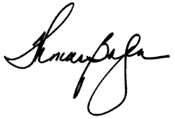2003 Distinguished Graduate Award
GEN Carl E. Vuono '57
General Vuono's career of service to the Nation began with his assignment as a young artillery officer with the 3rd Armored Cavalry Regiment and reached its zenith with his selection for four-star rank and the position of Chief of Staff of the Army. During a distinguished career of over thirty-four years, he served as executive officer of the 1st Battalion, 7th Field Artillery of the 1st Infantry Division and later as Division Artillery executive officer and commander of the 1st Battalion, 21st Field Artillery of the 1st Cavalry Division during two tours in Vietnam. He also commanded the 8th Infantry Division (Mechanized), the Combined Arms Center, and the Training and Doctrine Command.
His active duty career spanned the Cold War, from the construction of the Berlin Wall in 1961, through the restructuring of the Army during the collapse of the former Soviet bloc, and finally to America's initial post-Cold War victories in Operation Just Cause in Panama and Operation Desert Storm in Kuwait and Iraq. Upon retirement from active duty, he continued to serve our Nation by heading MPRI, a group of retired military leaders bringing their expertise to bear in support of U.S. national security objectives around the world.
Following Airborne and Artillery training, then-Lieutenant Vuono joined the Howitzer Battery, 1st Reconnaissance Squadron, 3rd Armored Cavalry Regiment; later he commanded the Howitzer Battery of the 3rd Reconnaissance Squadron. Reassigned to Korea in 1960, he served as Operations Officer for the 5th Howitzer Battalion, 82nd Artillery Regiment, 1st Cavalry Division. After a tour of duty with the XVIII Airborne Corps Artillery headquarters, he was selected to spend two years as an exchange officer with the 7th Royal Horse Artillery (Parachute), 16th Parachute Group, Aldershot, England. Following duty with the VII Corps Artillery in Europe, he joined the 1st Infantry Division in Vietnam in 1966. Upon completion of the Marine Corps Command and Staff College and duty as a Field Artillery Assignment Officer in the Office of Personnel Operations, he returned to Vietnam with the 1st Cavalry Division in 1970. He then served at the Pentagon as an Operations Research/Systems Analyst and as executive officer for the Office of the Project Manager for Reorganization of the Army.
Upon completion of the Army War College, he was Chief of the Budget Division in the office of the Deputy Chief of Staff for Personnel before taking command of the 82nd Airborne Division Artillery in 1975. While assigned as Executive to the Army Chief of Staff, he was promoted to brigadier general and then served as assistant division commander of the 1st Infantry Division, followed by duty as Deputy Chief of Staff for Combat Developments, Training and Doctrine Command. In 1981, he assumed command of the 8th Mechanized Infantry Division and in 1983 took command of the Combined Arms Center. After a tour of duty as the Army Deputy Chief of Staff for Operations, he was selected to head the Training and Doctrine Command in 1986. In 1987, he became the 31st Chief of Staff of the Army, serving in that capacity until retiring in 1991.
During the last four years of his career, years of great international tension, confrontation and war, General Vuono's Six Imperatives of Training, Doctrine, Personnel, Structure, Leaders, and Equipment shaped the Army as it shifted its emphasis from containing the Soviet Union to the less-defined challenges of the post-Cold War world. It was his vision and adept coordination that led to a successful joint intervention in Panama and a massive two-corps international coalition operation to repel Iraqi oppression in Kuwait. His legacy was demanding, realistic, effective training, but his guiding principle was to do what was best for the American soldier.
His service was recognized with the award of the Defense, Army (three awards), Navy, Air Force and Coast Guard Distinguished Service Medals in addition to the Bronze Star for Valor (six total awards), the Legion of Merit, and numerous other awards.
For a lifetime of selfless service to West Point, the Army and our Nation, the Association of Graduates takes great pride in presenting the 2003 Distinguished Graduate Award to Carl Edward Vuono, USMA Class of 1957.

THOMAS B. DYER
Chairman and CEO